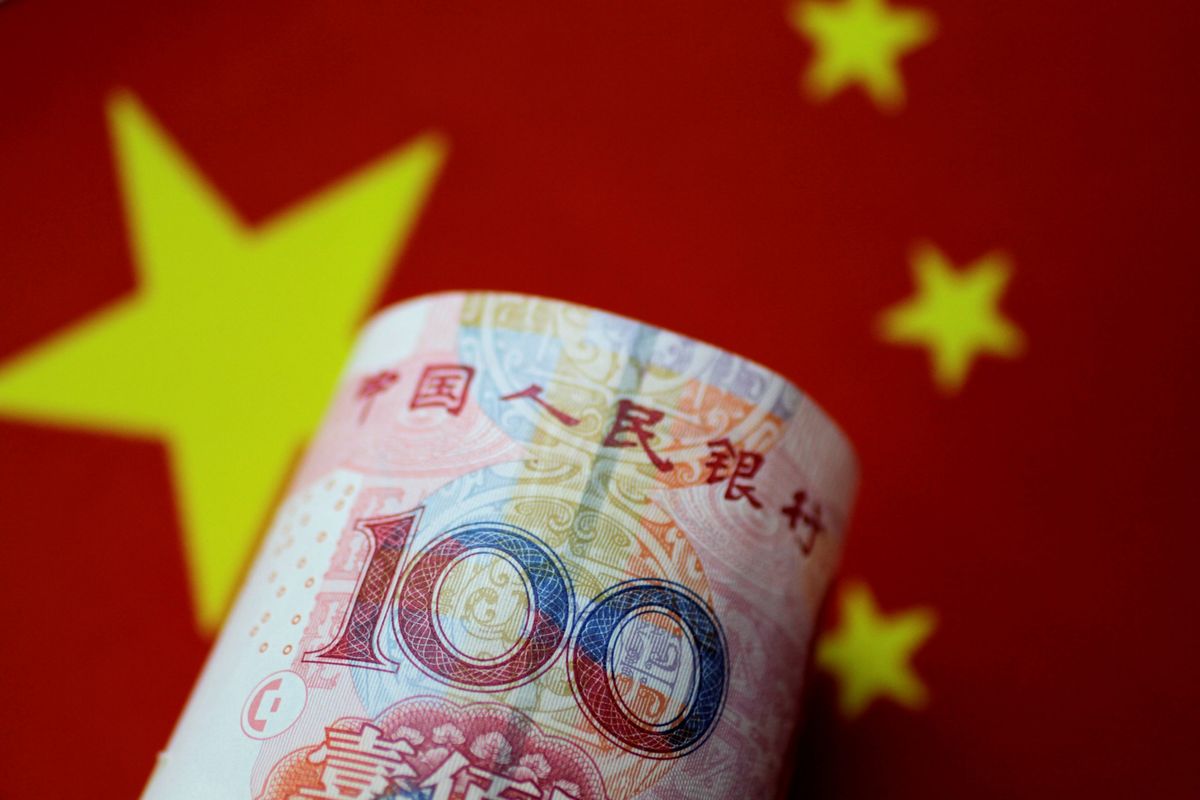How exactly does China’s digital yuan help weaken American sanctions and the US dollar?

A few minutes every morning is all you need.
Stay up to date on the world's Headlines and Human Stories. It's fun, it's factual, it's fluff-free.
But, the digital yuan isn’t quite completed yet. While the currency is out and people have access to it for things like retail transactions, it’s only just now being introduced as something people can use to make investments or buy insurance.
What is the digital yuan?
- China’s digital yuan is exactly what it sounds like; it’s a version of their regular currency, except it exists only digitally and is stored in digital wallets.
- But, it isn’t just a digital transaction like how you pay for something on Amazon. The money exists as an actual dollar somewhere, like in a bank, and is transferred to someone, somewhere else.
- It isn’t a cryptocurrency either because it’s centralized and controlled by the People’s Bank of China. Cryptocurrencies, like Bitcoin, are decentralized and therefore harder to keep track of.
- Digital currencies are their own thing altogether, using a lot of the same technology as cryptocurrencies, but instead, they’re managed and safeguarded by a single group.
- But, the digital yuan isn’t quite completed yet. While the currency is out and people have access to it for things like retail transactions, it’s only just now being introduced as something people can use to make investments or buy insurance.
- There are some legitimate concerns with it too, such as security and privacy concerns. On top of that, things like fake digital yuan are already emerging.
What does the digital yuan have to do with American sanctions?
- When it comes to transactions, there are only a few effective ways of doing it internationally, cheaply and quickly. By and large, the most popular way of doing it is through SWIFT.
- SWIFT stands for the Society for Worldwide Interbank Financial Telecommunication and is actually a private company based in Belgium, but more than 40% of SWIFT transactions are in the United States dollar.
- When transactions are done in the US dollar, they almost always go through a US bank, and those US banks are subject to US regulations.
- Most of the time these regulations are pretty standard, but when the US decides to sanction individuals or companies, those entities can have a much harder time actually making transactions, because the US banks are required by the government to stop them in their tracks.
- Even banks outside of the US tend to follow US sanctions because almost 40% of the world’s debt is issued in dollars and, therefore, foreign banks need a lot of dollars to conduct business. If they don’t follow the sanctions, these countries run the risk of not getting dollar funding.
- One example of this is in Hong Kong’s Chief Executive Carrie Lam, who reportedly was stockpiling cash after being hit by US sanctions because she couldn’t use her own bank accounts.
So, how does the digital yuan weaken the US dollar?
- The digital yuan can avoid the SWIFT system altogether.
- If transactions avoid the SWIFT system, people and companies hit with US sanctions can essentially avoid traditional transactions altogether and instead, pay people and receive payment directly from wallet to wallet.
- This is good news for pretty much anyone in the world looking to avoid US sanctions, or simply find an alternative to SWIFT.
- And it has some benefits over traditional cryptocurrency in that the digital yuan is tied to the price of the physical yuan and therefore offers stability that Bitcoin, for example, doesn’t.
- Mind you though, it’s not like banks are going to stop dealing with the US altogether, but it does mean that threats from the US about less cooperation or halting of US dollar funding may potentially hold a bit less weight in the future.
What’s next?
- Partly because of the pressure from China’s digital currency, the US is now looking a lot more at how it will make its own version of the digital dollar.
- Over the Summer, Federal Reserve Chairman Jerome Powell announced that the central bank was moving forward with plans to introduce a digital currency in the US.
- “Our focus is on ensuring a safe and efficient payment system that provides broad benefits to American households and businesses while also embracing innovation,” said Powell.
- But US Federal Reserve officials have repeatedly emphasized that they’re not looking to race anyone to get it done, but rather that they’re more concerned with getting the system right.
- It’s unclear how important the time factor is and how quickly foreign banks will move closer to China’s digital yuan and away from the US dollar. But this is ultimately one of the next moves in the economic competition between the US and China.
You drive the stories at TMS. DM us which headline you want us to explain, or email us at tips@themilsource.com







Comments ()